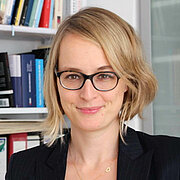How can we explain the geographical variation of populism in Europe? In the North, right-wing populism dominates, while for many years left-wing populism has been the common in the South. Outside Europe, for example in Latin America, governments frequently shift between left and right populist presidents. In a talk at the Hertie School, Philip Manow will discuss populist protest in various political economies by looking at how vulnerable they are to the two most powerful features of globalisation: the movement of goods and capital across borders and migration.
This event is part of the Examining populism series, which invites speakers of different disciplinary backgrounds for discussions on the causes, effects and implications of the populist rise. It is co-chaired by Hanna Schwander, Professor of Public Policy, and Christian Flachsland, Assistant Professor of Climate and Energy Governance at the Hertie School.
Guest speaker

Philip Manow is professor for Comparative Political Economy at the University of Bremen and member of the Berlin-Brandenburg Academy of Science. He held professorships at the universities of Konstanz and Heidelberg, was a visiting scholar at the Center for European Studies, Harvard, and at Sciences Po, Paris. He has published, among others, in Political Science Research and Methods, British Journal for Political Science, Comparative Political Studies, Legislative Studies Quarterly, European Journal for Political Science. His latest book is 'Die politische Ökonomie des Populismus' that appeared with Suhrkamp in 2018 (3rd Edition 2019).
Welcome

Hanna Schwander is Professor of Public Policy at the Hertie School. Located at the intersection between comparative politics, political sociology and political economy, her research is guided by an interest in how post-industrial transformations of welfare states, labour markets and societies affect various aspects of political life.
About the Examining populism series
The political landscapes of capitalist democracies are in motion. The Brexit-referendum, the elections of Donald Trump and Jair Bolsonaro are only the most prominent examples that illustrate the growing relevance of populism in contemporary democracies. Populism challenges the core mission of the Hertie School to contribute to a fact-based and inclusive public policy debate based on cosmopolitan values.

